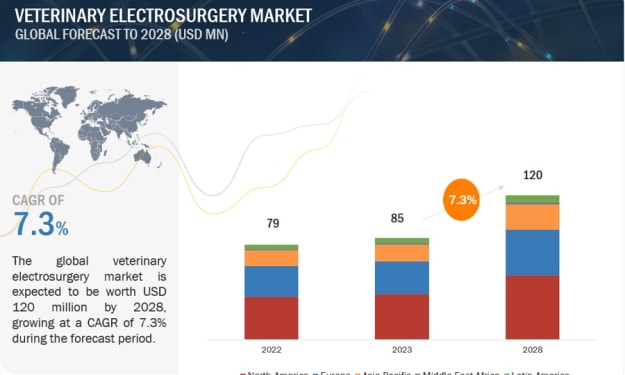Income Inequality: Explore the Impact of Economic Development with Comprehensive Coverage"
Income inequality, the unequal distribution of income among individuals or households within a society, is a pressing global issue. As economies develop and progress, the distribution of wealth and opportunities becomes a critical factor in shaping social cohesion and economic stability. This article aims to provide a comprehensive analysis of income inequality and its impact on societies, exploring the relationship between income inequality and economic development. By understanding the nuances of this complex issue, policymakers and stakeholders can work towards fostering more inclusive and equitable societies.

Defining Income Inequality:
Income inequality refers to the disparity in the distribution of income among individuals or households within a society. It is typically measured using metrics such as the Gini coefficient, which quantifies income distribution on a scale from 0 to 1, with 0 representing perfect equality and 1 representing extreme inequality. Income inequality encompasses both relative inequality, which compares income levels among different groups, and absolute inequality, which focuses on the actual income gaps.
Causes of Income Inequality:
Income inequality is influenced by a range of factors, including:
a. Education and Skills: Educational attainment and skills play a crucial role in determining income levels. Disparities in access to quality education and training opportunities can perpetuate income inequality.
b. Technological Advancements: Technological advancements can lead to increased productivity and economic growth. However, they can also result in skill-biased technological change, where individuals with advanced skills benefit disproportionately, exacerbating income inequality.
c. Globalization: Globalization has created opportunities for economic growth and development. However, it has also contributed to increased competition, outsourcing of jobs, and wage stagnation, leading to income disparities.
d. Labor Market Factors: Factors such as minimum wage policies, labor market regulations, and bargaining power influence income distribution. Inadequate labor protections and the decline of collective bargaining can contribute to income inequality.
e. Tax and Welfare Policies: Taxation and social welfare policies can either mitigate or exacerbate income inequality. Progressive tax systems, targeted social transfers, and investment in social programs can help reduce inequality.
Impact of Income Inequality on Societies:
Income inequality has wide-ranging implications for societies:
a. Economic Growth: High levels of income inequality can hinder long-term economic growth. Excessive concentration of wealth can limit consumption and aggregate demand, leading to reduced economic dynamism and slower overall growth.
b. Social Mobility: Income inequality can impact social mobility, making it harder for individuals from lower-income backgrounds to improve their economic status. Limited access to quality education, healthcare, and job opportunities can perpetuate income disparities across generations.
c. Poverty and Social Exclusion: Income inequality is closely linked to poverty rates. High levels of inequality can lead to higher poverty rates, limited access to basic necessities, and social exclusion.
d. Health and Well-being: Income inequality has implications for health outcomes and overall well-being. Studies have shown that societies with higher income inequality tend to have worse health outcomes, including higher rates of chronic diseases and reduced life expectancy.
e. Social Cohesion and Trust: Income inequality can erode social cohesion and trust within societies. When income gaps are perceived as unfair or unjust, it can lead to social unrest, polarization, and a breakdown in social relationships.
Addressing Income Inequality:
Addressing income inequality requires comprehensive and multidimensional approaches:
a. Education and Skills Development: Investing in quality education and lifelong learning opportunities can reduce income disparities by equipping individuals with the skills and knowledge needed for better employment prospects.
b. Labor Market Reforms: Promoting fair labor market practices, strengthening workers' rights, and ensuring decent wages can help reduce income inequality. Policies that promote collective bargaining and protect workers' rights can contribute to more equitable income distribution.
c. Progressive Taxation: Implementing progressive tax systems, where higher-income individuals contribute a higher proportion of their income, can help redistribute wealth and reduce income inequality.
d. Social Safety Nets: Establishing robust social safety nets, including social transfers and access to essential services such as healthcare and education, can provide a safety net for those facing economic challenges and reduce income disparities.
e. Inclusive Growth Strategies: Fostering inclusive economic growth that benefits all segments of society is crucial for reducing income inequality. This involves promoting job creation, supporting small and medium-sized enterprises, and ensuring equitable access to economic opportunities.
f. International Cooperation: Addressing global income inequality requires international cooperation. Promoting fair trade, reducing tax evasion and illicit financial flows, and supporting developing countries' efforts to reduce inequality can contribute to a more equitable global economic system.
Conclusion:
Income inequality poses significant challenges to societies and economic development. Understanding its causes and implications is crucial for formulating effective policies and strategies to foster more inclusive and equitable societies. By investing in education, implementing fair labor market practices, promoting progressive taxation, establishing robust social safety nets, and fostering inclusive growth, societies can work towards reducing income inequality and creating opportunities for all individuals to thrive.
About the Creator
Huatin OU
Originally from Western China,live in Saskatoon as a freelance writer. vibrant energy of this city fuels creativity, lending a unique flair to work. a fusion of Eastern roots and Western experiences, captures the magic find in everyday life
Enjoyed the story? Support the Creator.
Subscribe for free to receive all their stories in your feed. You could also pledge your support or give them a one-off tip, letting them know you appreciate their work.






Comments
There are no comments for this story
Be the first to respond and start the conversation.